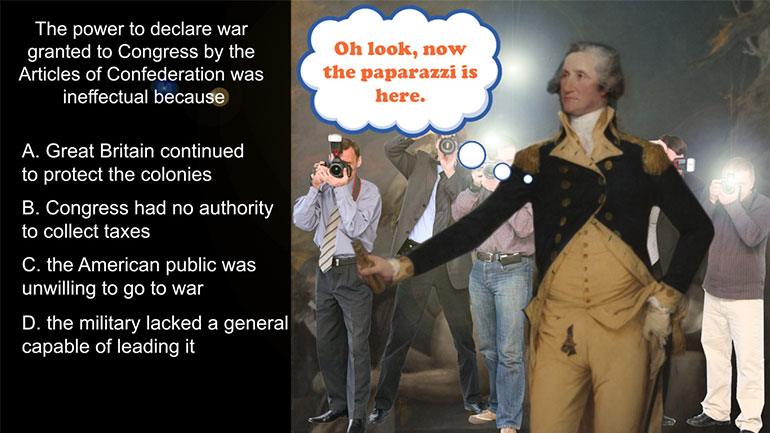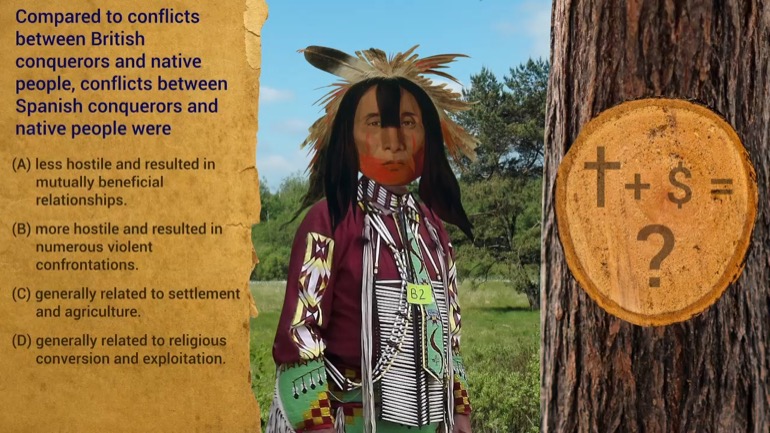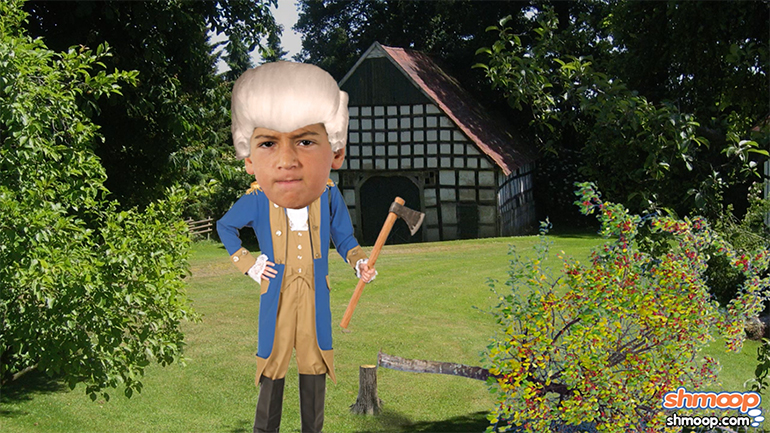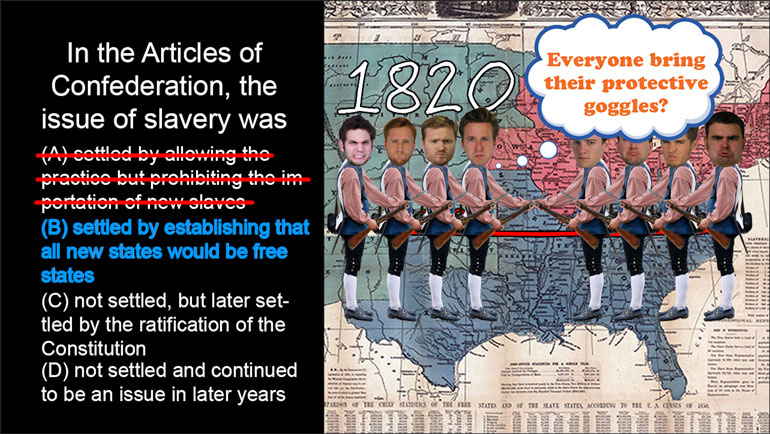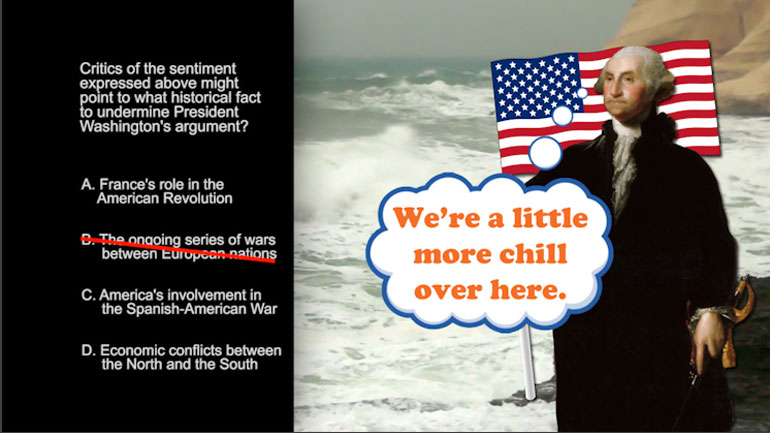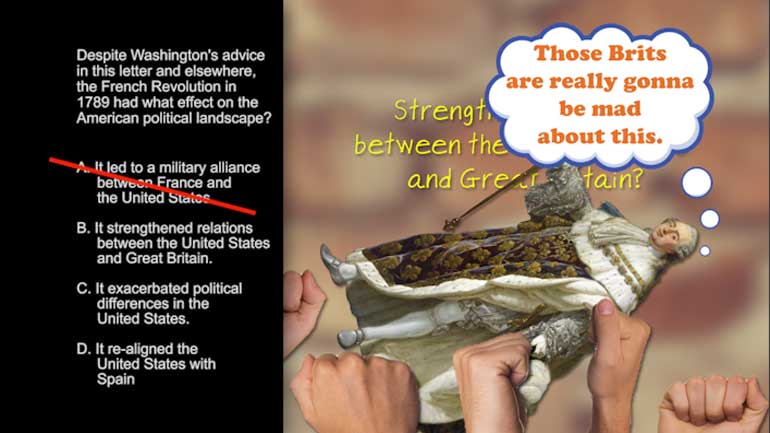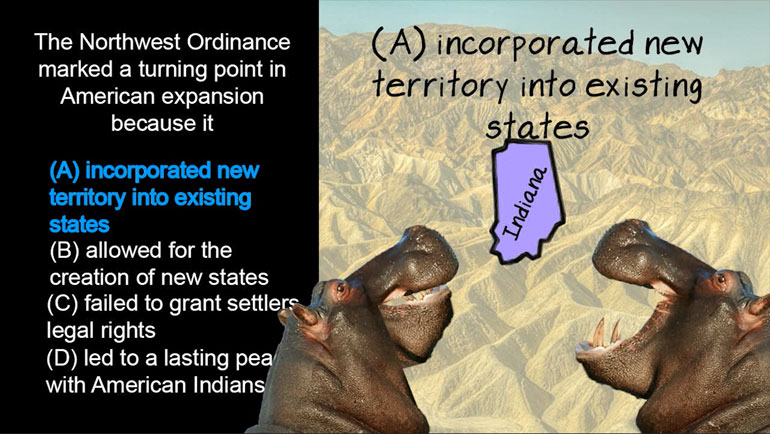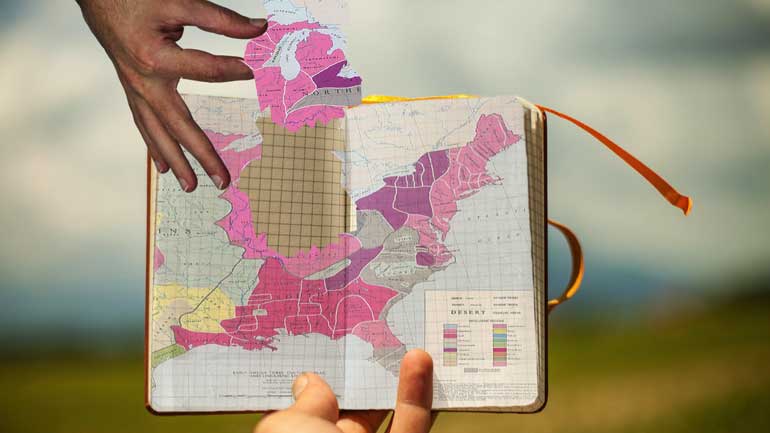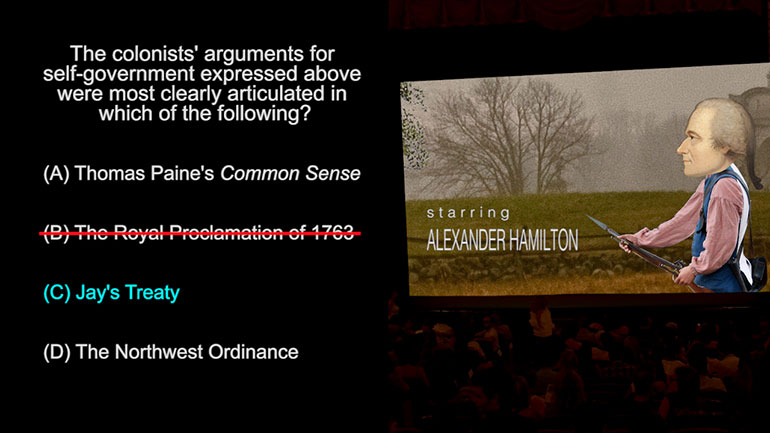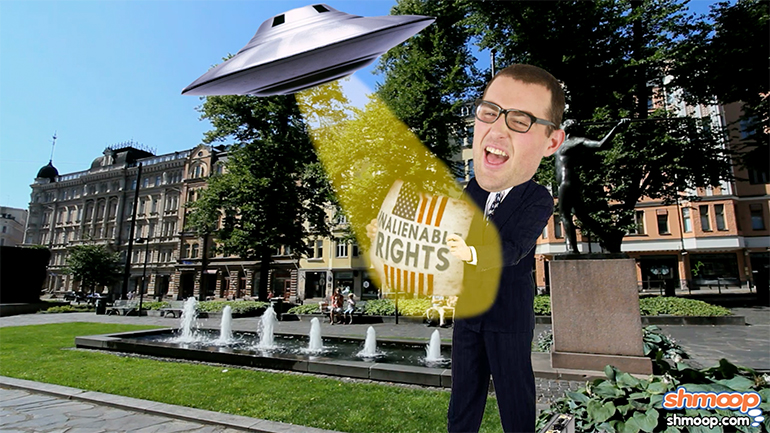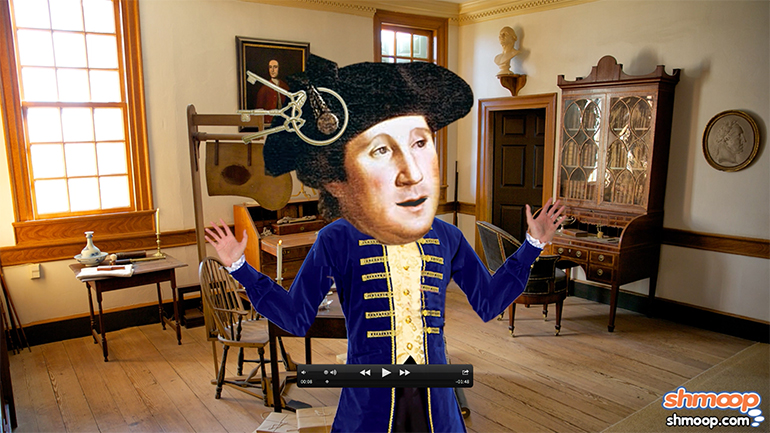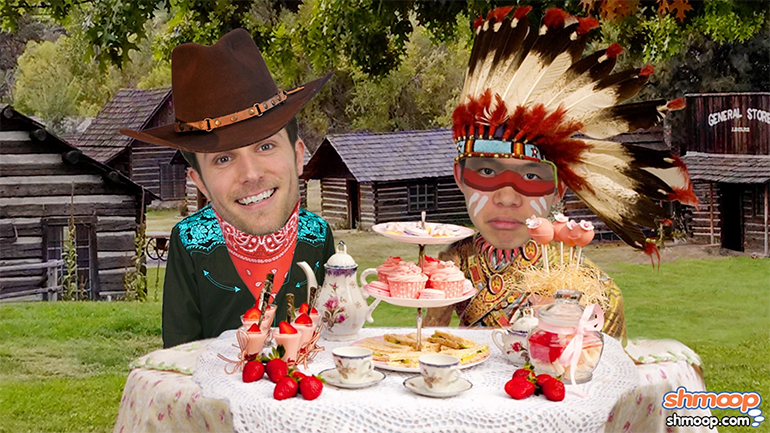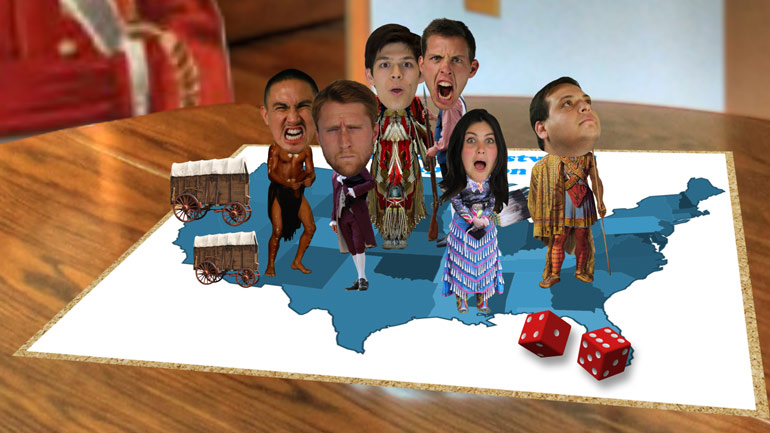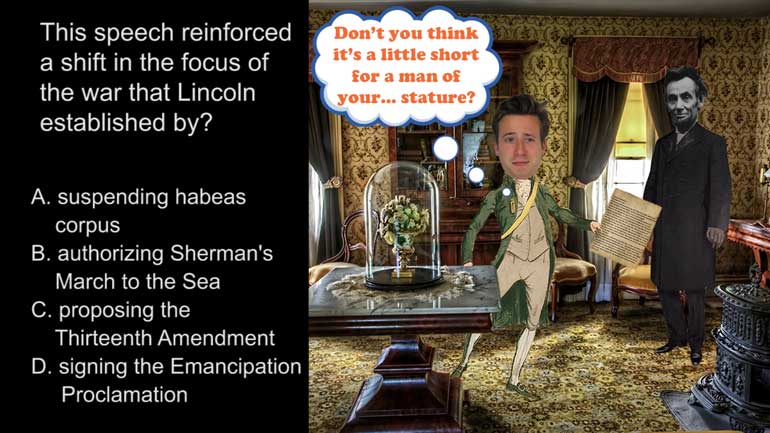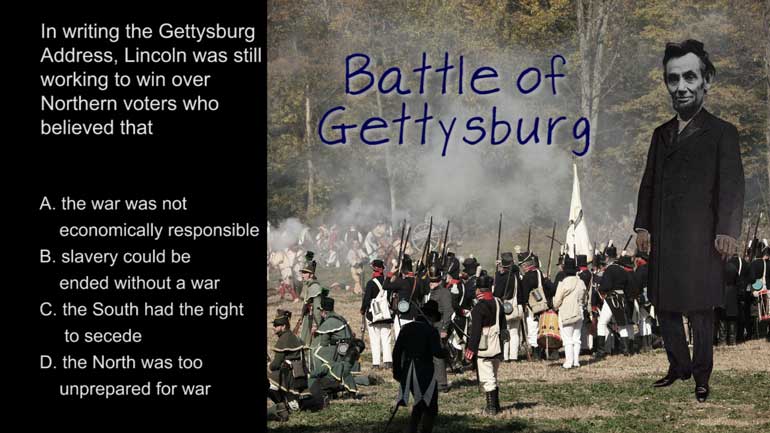ShmoopTube
Where Monty Python meets your 10th grade teacher.
Search Thousands of Shmoop Videos
Period 3: 1754–1800 Videos 20 videos
AP U.S. History 1.1 Period 3: 1754–1800. Why was the power to declare war granted to Congress by the Articles of Confederation ineffectual?
AP U.S. History 1.2 Period 3: 1754-1800. The structure of the government that the Articles of Confederation established most clearly reflects the R...
AP U.S. History 3.4 Period 3: 1754-1800. Common Sense had the most in common with which of the following?
AP U.S. History 2.2 Period 3: 1754-1789 258 Views
Share It!
Description:
AP U.S. History 2.2 Period 3: 1754-1789. Abolitionists would most likely have criticized the Northwest Ordinance over which of the following points?
Transcript
- 00:00
[ musical flourish ]
- 00:03
And here's your Shmoop du jour, brought to you by Ohio,
- 00:07
or what you say when you greet someone in the Midwest.
- 00:11
All right, give this excerpt a scan.
- 00:13
[ mumbles ]
Full Transcript
- 00:15
[ mumbling continues ]
- 00:17
And now this question:
- 00:18
Abolitionists would most likely have
- 00:20
criticized the Northwest Ordinance
- 00:22
over which of the following points?
- 00:25
All right, and here are your potential answers.
- 00:27
[ horse neighs ]
- 00:31
So what exactly is this question asking?
- 00:33
We know that the abolitionists fought to end slavery in the United States,
- 00:37
so there must have been something about
- 00:38
the Northwest Ordinance, which created a bunch of
- 00:40
new territories in the Northern U.S.,
- 00:43
that set them off.
- 00:44
So let's take a look at the answers
- 00:45
and see what we've got.
- 00:46
Were abolitionists upset because the Northwest Ordinance
- 00:49
A - permitted slavery in the territories?
- 00:52
Actually, the Northwest Ordinance
- 00:54
forbade slavery and the slave trade in
- 00:56
all of the new territories, making the Ohio River
- 00:59
a kind of de facto boundary between
- 01:01
slave states and free states.
- 01:03
So that eliminates both A and B.
- 01:05
Were abolitionists critical because the Northwest Ordinance
- 01:08
D - prohibited slavery in the territories
- 01:11
but sanctioned it in the South?
- 01:12
Well, the Ordinance said nothing about slavery in the South,
- 01:15
so we can nix this one, too.
- 01:17
So they must have been upset because the Northwest Ordinance
- 01:19
C - allowed slaveholders to reclaim
- 01:22
runaway slaves in the territories.
- 01:24
There's the catch.
- 01:25
As part of the politicking to get the law
- 01:27
passed, a fugitive slave clause was included in the bill,
- 01:30
which permitted slaveholders to
- 01:32
reclaim runaway slaves in these new territories.
- 01:36
So C is the right answer, as in "compromise"
- 01:38
or "catastrophe."
- 01:41
[ water splashes ]
Related Videos
AP U.S. History Exam 2.45. The journey shown on the map was an example of...what?
AP U.S. History Exam 2.26. This speech reinforced a shift in the focus of the war that Lincoln established by...what?
What did the Spanish messengers bring with them to North America? Hint: you probably wouldn't be thrilled to get this for your next birthday.
AP U.S. History Diagnostic 24. How did the United States choose containment over the National Security Council Report in Latin America?
AP U.S. History Exam 2.25. In writing the Gettysburg Address, Lincoln was still working to win over Northern voters who believed that...what?
